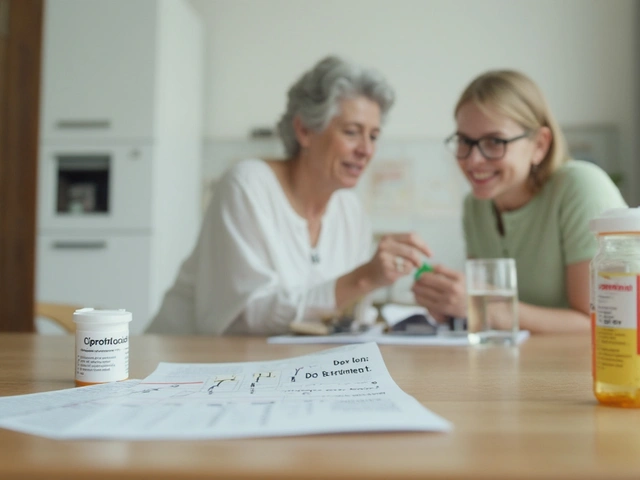Premature Ejaculation: Causes, Treatments & Practical Tips
Premature ejaculation (PE) happens when ejaculation occurs sooner than you or your partner want during sex. It's common and usually treatable. This page gives clear, practical steps you can try today and explains medical options so you know what to ask your doctor.
Common causes include anxiety, performance pressure, relationship issues, fast arousal, certain medications, and medical conditions like prostate inflammation or hormone imbalances.
Quick fixes that help now
Try the stop-start method: stop stimulation before you feel close, wait 20-30 seconds, then start again. The squeeze technique is similar: apply gentle pressure to the head of the penis to lower arousal. Both take practice but can add minutes quickly.
Thicker condoms and topical numbing creams with lidocaine or prilocaine can slow sensation. Use a small amount at first and test for partner sensitivity. Talk with a pharmacist if you buy online, our guide on safe online pharmacies covers checks you should do.
Long-term approaches your doctor may suggest
Doctors often try SSRIs like dapoxetine, paroxetine, or sertraline. These can delay ejaculation after days or weeks of treatment; dapoxetine is used on-demand in some countries. Topical anesthetics prescribed by a doctor work too. If you also have erectile dysfunction, PDE5 inhibitors such as tadalafil can help; see our pieces on Tadalista and ED alternatives for more on that.
Psychosexual therapy and counseling help when anxiety or relationship factors drive PE. Pelvic floor exercises strengthen control; squeeze practice and breathing techniques reduce tension. Cut back on heavy drinking and stimulants. Regular exercise and sleep improve sexual control too.
See a doctor if PE causes stress, avoids sex, or doesn't respond to home methods. A clinician will check your health, review medications that can cause PE, and test for prostatitis or hormonal issues. Treatment is tailored; many men improve with simple steps plus medical support.
Expect to try methods for several weeks. Behavioral exercises often need 4-8 weeks to show steady improvement. Short courses of SSRIs might work faster, but side effects can include nausea, tiredness, or lower libido. Topical anesthetics can cause partner numbness, cover with a condom if that happens.
When you talk to a clinician, be direct. Say how long it's been happening, what you already tried, and any medications you take. Ask about simple tests such as PSA or thyroid checks only if symptoms point that way. If you need prescriptions, use trusted pharmacies and check reviews, Tamiflu and safe pharmacy guides explain red flags.
Want more? Read patient guides on safe medication buying and ED options on this site. Good resources are our articles on Tadalista, Viagra competitors, and natural ED alternatives. If you're uncomfortable, bring your partner or ask for a referral to a sexual health clinic.
Small changes add up: focus on shared foreplay, reduce rush, communicate during sex, and celebrate progress. If anxiety is high, ask about counseling courses or stress management. You don't have to accept PE as permanent, many men regain control with simple steps.
Finding effective treatments for premature ejaculation can be essential for many men seeking to improve their sexual health. This article explores nine alternatives to Priligy, highlighting their benefits and limitations. From various generic versions like Dapox, Dasutra, and Duralast to innovative off-label options such as daily SSRI use and topical local anesthetic agents, each alternative offers unique advantages. The information aims to provide a comprehensive overview to help individuals make informed decisions regarding their treatment options.
Read more





